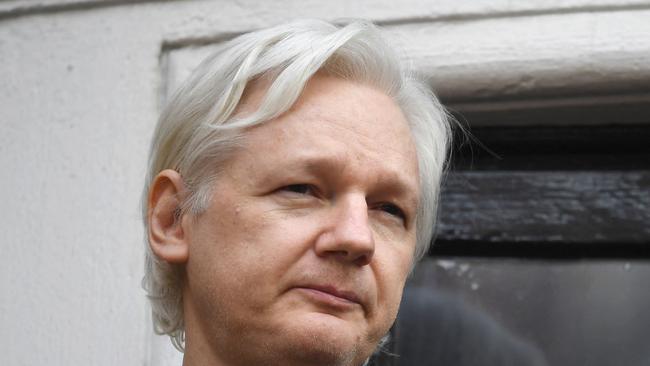UK clears the Julian Assange extradition to US
The extradition of Julian Assange has been approved by the British government, clearing the way for the WikiLeaks founder to face espionage charges in the US.

The extradition of Julian Assange has been approved by the British government, clearing the way for the WikiLeaks founder to face espionage charges in the United States.
A spokesman for British Home Secretary Priti Patel said she “must sign an extradition order if there are no grounds to prohibit the (extradition) order being made”, and the courts had found none.
Australian-born Assange has 14 days to appeal, with WikiLeaks indicating it would launch legal action.
“This is a dark day for press freedom and for British democracy,” the group said in a statement, insisting Mr Assange, 50, “did nothing wrong” and was “being punished for doing his job”.
Mr Assange is wanted by the US authorities over the leak of secret documents in 2010 and 2011. He has been in prison since he was removed from the Ecuadorian embassy in London in 2019 and arrested by British police, after Ecuador withdrew his asylum status.
In 2019, while serving a prison sentence in Britain for breaching bail, the US Justice Department filed 17 charges against Mr Assange for violating the Espionage Act, claiming that material obtained by WikiLeaks endangered US lives.
Mr Assange’s legal team claimed the documents, relating to wars in Iraq and Afghanistan, exposed US wrongdoing and were in the public interest.
In a joint statement, Foreign Minister Penny Wong and Attorney-General Mark Dreyfus said: “The Department of Foreign Affairs and Trade will continue to offer consular assistance to Mr Assange, noting that Australia is not a party to Mr Assange’s case, nor can the Australian government intervene in the legal matters of another country.
“We will continue to convey our expectations that Mr Assange is entitled to due process, humane and fair treatment, access to proper medical care, and access to his legal team.
“The Australian government has been clear in our view that Mr Assange’s case has dragged on for too long and that it should be brought to a close.”
The extradition decision was passed to Ms Patel last month after London’s Supreme Court ruled that there were no legal issues relating to assurances given by the US government over how Mr Assange would be treated. She made the decision following a promise US authorities would not seek the death penalty.
Her spokesman said: “Under the Extradition Act 2003, the secretary of state must sign an extradition order if there are no grounds to prohibit the order being made.
“Extradition requests are only sent to the Home Secretary once a judge decides it can proceed after considering various aspects of the case.
“On 17 June, following consideration by both the magistrates court and high court, the extradition of Mr Julian Assange to the US was ordered. Mr Assange retains the normal 14-day right to appeal.
“In this case, the UK courts have not found that it would be oppressive, unjust or an abuse of process to extradite Mr Assange.
“Nor have they found that extradition would be incompatible with his human rights, including his right to a fair trial and to freedom of expression, and that whilst in the US he will be treated appropriately, including in relation to his health.”
Agencies



To join the conversation, please log in. Don't have an account? Register
Join the conversation, you are commenting as Logout